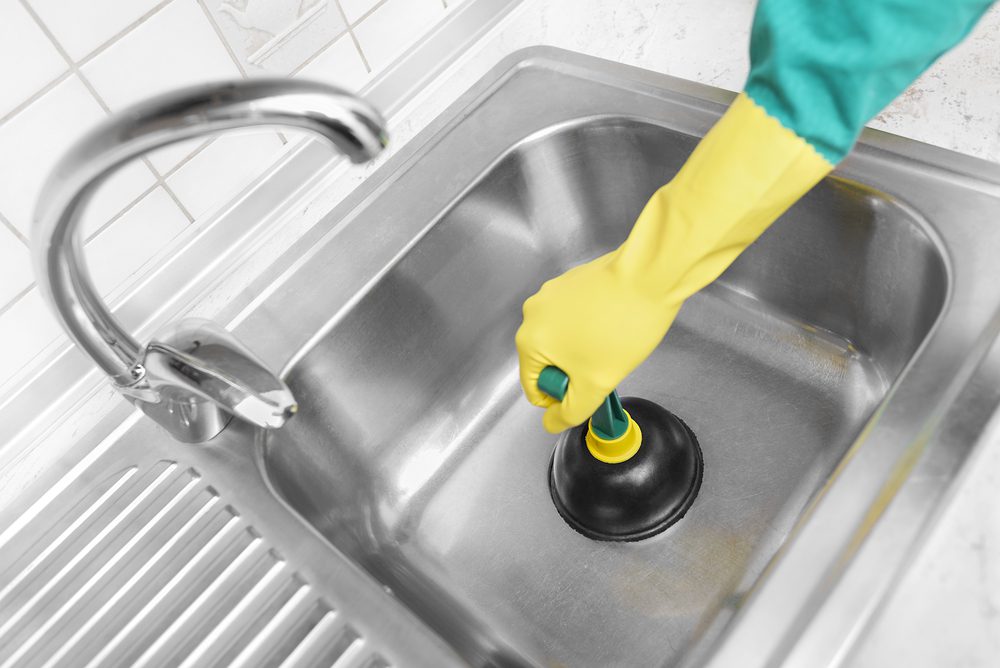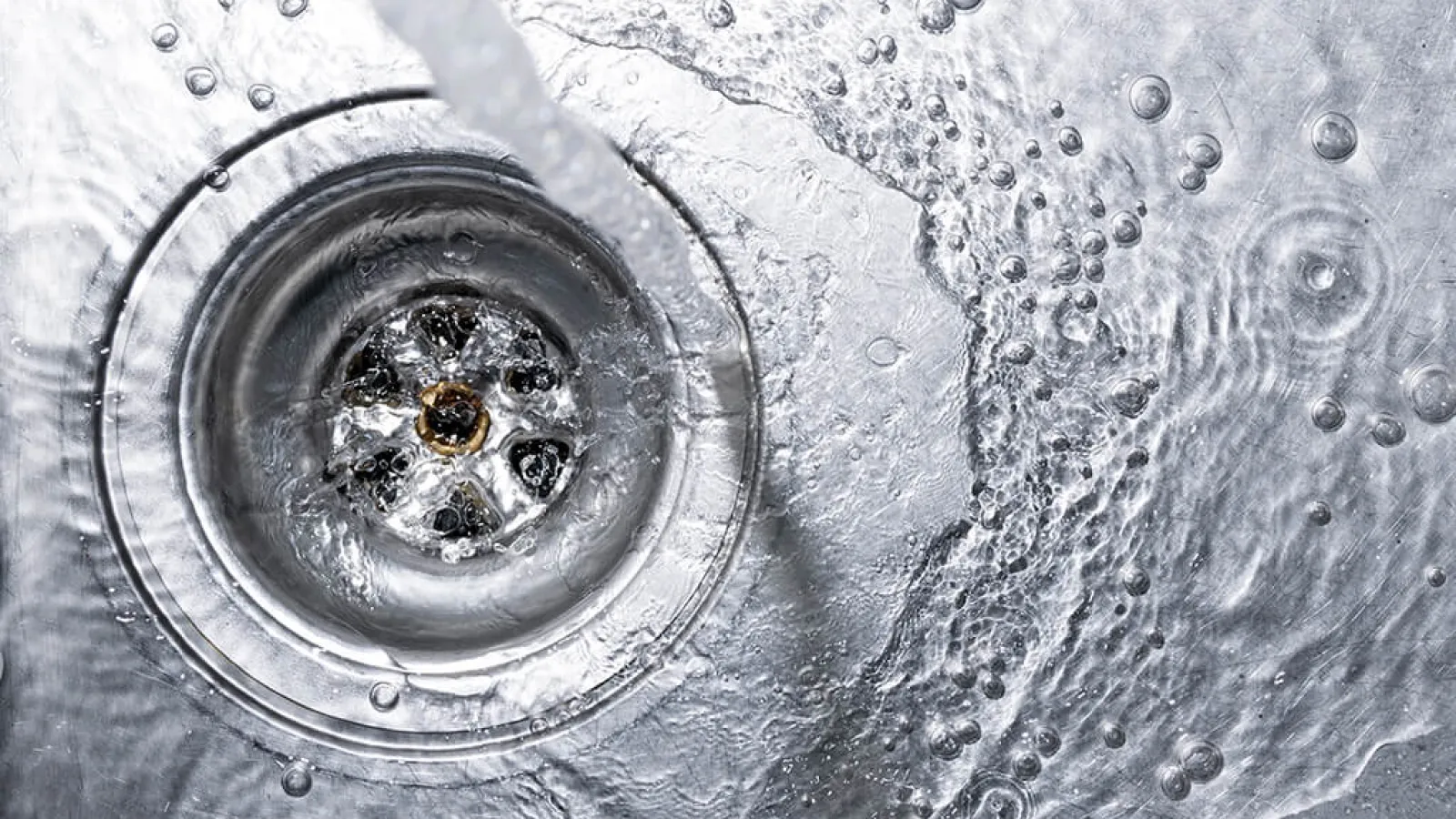Basic Ways To Correct A Slow-Draining Sink
Basic Ways To Correct A Slow-Draining Sink
Blog Article
Just how do you really feel in relation to Solved! How to Fix a Slow Sink Drain?

Intro
We have actually all been there: You're brushing your teeth or cleaning your hands, and you see the water pooling in the sink. Instead of rapidly swirling down the tubes, it remains, transforming your once-refreshing early morning routine right into a small swamp scene. A slow-draining sink isn't just bothersome; it's frequently an indication of larger pipes problems hiding below the surface. The bright side is that the majority of slow-draining sinks can be repaired with a little knowledge, a few standard tools, and some patience. All set to tackle this job head-on? Let's roll up our sleeves and dive right in.
Recognizing the Root Causes Of a Slow-Draining Sink
Before you begin poking around in your pipes, it assists to know what may be causing the downturn. Recognizing the origin makes it less complicated to choose the best repair.
Common Offenders Behind Slow Drain
So, what's obstructing things up? Usually, it's a blend of day-to-day particles-- think hair, soap residue, toothpaste residue, and leftover food bits. Gradually, these little bits build up and cling to the pipe walls, slowly narrowing the flow and making it harder for water to go through. In some cases, natural resource from difficult water can additionally contribute to the crud, producing the ideal tornado for stubborn obstructions.
When is it Time to Act?
If you discover the water draining slower than typical, it's an excellent concept to interfere sooner instead of later on. Waiting also long might cause finish obstructions, unpleasant odors, or even pipe damages. If the water takes more than a few secs to remove after switching off the faucet, consider it a warning and prepare to put on your DIY hat.
Tools and Materials You'll Require
The right tools make all the distinction. The good news is, you won't require a completely equipped plumbing professional's van to do the job.
Crucial Tools for DIY Repairs
A plunger is your go-to beginning point. A small, sink-sized plunger develops suction that can remove small blockages. For even more consistent blockages, a drain serpent (sometimes called a plumber's auger) functions wonders. A pair of handwear covers, a flashlight, and possibly a set of protective safety glasses are also useful.
Suggested Cleansing Solutions
Moderate meal soap and warm water can assist break down oily accumulation. A blend of baking soft drink and vinegar is a tried and true natural remedy, and chemical cleansers supply an even more eco-friendly strategy. Maintain chemical drain cleaners as a last hope, as they can be harsh on your pipes.
Safety First: Preventative Measures and Preparations
Prior to you launch into unclogging mode, think about security. You're managing possibly dirty water and particles, so slip on a pair of handwear covers. If you're making use of chemical cleansers, ensure the room is well-ventilated and comply with the guidelines on the label.
Protective Gear and Workspace Configuration
Set some old towels or cloths around the sink location to catch dashes. Remove any type of products that may enter your method, like soap dispensers or tooth brush owners. Make certain you have excellent lighting-- get hold of a flashlight if required.
Step-by-Step Guide to Repairing a Slow-Draining Sink
Currently, allow's get into the nitty-gritty. This detailed process will certainly assist you with straightforward strategies to restore your sink's drain.
Step 1: Get Rid Of and Tidy the Stopper
Commonly, the stopper (that small plug you push down to obstruct water) is the initial wrongdoer. Remove it very carefully and wipe any kind of hair or substance trapped around its base. Rinse it completely prior to placing it back in place.
Step 2: Use a Plunger to Dislodge Debris
Got that bettor ready? Setting it over the drain and offer it a couple of company pumps. The idea is to create suction that can loosen any type of clog. If you see bits of debris drifting up, you're on the right track.
Action 3: Attempt a Drainpipe Snake or Wire Wall Mount
If the bettor doesn't suffice, it's time to bring out the drainpipe snake. Carefully feed it right into the drainpipe and spin as you go. You might feel some resistance-- that's likely the blockage. Maintain turning and drawing till you get rid of the blockage. If you do not have a drainpipe serpent, an aligned cord hanger can operate in a pinch.
Tip 4: Use a Do It Yourself Drainpipe Cleanser
An all-natural cleaner made from cooking soft drink and vinegar can break down recurring gunk. Pour half a cup of cooking soft drink into the drain, complied with by half a cup of vinegar. Allow it fizz for about 15 minutes, then flush with warm water. This chemical reaction often does wonders for small blockages.
Tip 5: Rebuild and Evaluate the Sink
Placed every little thing back with each other and run the tap. Does the water now swirl away at a reputable speed? If yes, provide on your own a pat on the back. Otherwise, do not despair-- there are still a few more tricks up your sleeve.
Alternative Techniques for Stubborn Clogs
Not all blockages are created equivalent. If your sink still refuses to work together, think about these different solutions.
Baking Soda and Vinegar Approach
We currently touched on this, however it's worth noting once again. This gentle, environmentally friendly approach is more secure than chemical cleaners and often quite efficient.
Chemical Drain Cleansers
Enzyme-based cleaners utilize all-natural bacteria to absorb raw material. They're an exceptional choice if you're looking to prevent extreme chemicals. Just keep in mind, they might take a bit longer to function their magic.
Chemical Drain Cleansers: Advantages And Disadvantages
Chemical cleansers can blast via challenging clogs quick, but they're not without drawbacks. They can generate warmth and fumes, damages pipes if utilized excessively, and present ecological threats. Utilize them moderately, and always comply with the instructions thoroughly.
Safety Nets to Keep Your Sink Flowing
Prevention is the very best treatment. By adopting a couple of easy behaviors, you can keep your sink from decreasing in the first place.
Normal Cleansing Habits
Clean down the sink basin and component area regularly. Eliminate hair or food particles before they have a possibility to wash down the drainpipe.
Staying Clear Of Harmful Materials Down the Drain
Think twice prior to disposing coffee premises, oil, or fibrous vegetable scraps down the sink. These perpetrators cling to pipe walls, creating blockages over time.
Regular Maintenance Checks
Schedule a quick monthly examination. Run hot water with the sink for a couple of mins, taking note of the flow. If it appears sluggish, act quick prior to it becomes a full-blown blockage.
When to Call a Professional Plumbing Professional
Sometimes, no matter exactly how difficult you try, that obstruct just will not move. That's when it's time to generate the pros.
Indications That Suggest an Extra Major Problem
If your sink drains pipes slowly in spite of several attempts, or if you see water supporting in various other components (like your shower or commode), you might have an extra severe plumbing problem lurking deeper in the system.
Stabilizing Do It Yourself Efforts with Expert Assistance
While DIY can conserve you cash and use a sense of achievement, there's no pity in calling a specialist. An expert plumber can examine your entire pipes configuration, ensuring there's no underlying damage or long-term issue that might cost you a lot more down the road.
Contrasting Prices and Long-Term Solutions
Prior to choosing, take into consideration the big picture. A cheap, quick fix may resolve the trouble momentarily, but purchasing an extra permanent option could conserve you cash and tension over time.
Weighing the Costs of Do It Yourself vs. Professional Solutions
Do it yourself fixes commonly set you back bit more than the rate of a bettor or a container of baking soda. Expert services, on the other hand, featured a price however might protect against repeated concerns and expensive repair work later on.
Purchasing High Quality Fixtures and Upgrades
If your sink's style adds to frequent clogs, it might be worth upgrading to higher-quality components or modifying the pipes design. Consider this an investment in your home's performance and convenience.
Final thought
A slow-draining sink can seem like a minor irritability, however it's often a sign that your plumbing requires a little TLC. By comprehending the source, using the right devices and techniques, and dedicating to basic safety nets, you can keep your sink streaming easily. And when all else falls short, never be reluctant to employ a professional-- your home's pipes is worth the financial investment in care and maintenance.
Three Common Ways to Fix a Slow Drain
Baking Soda Method
Boil a full pot of water. Measure out cup of baking soda and pour it down the drain. Then take cup of the magical cleansing substance known as white vinegar and drop that down there too. Allow the mixture to fizz in the drain for five minutes as the vinegar and baking soda combine. Now dump in that whole pot of boiling water. This combination of cleaning substances should clear out anything that is causing your sink to drain slowly. If it doesn t...
Zip-It
If the baking soda method doesn t clear out your drain, it may be because a significant amount of hair and/or other debris has collected there and you need to remove it. Purchase a Zip-It tool at any home improvement or hardware store and insert it into your drain. It will catch any collected hair or debris that s blocking the flow of water. Pull it out. If it s got a big clump of hair, etc. on the end, you ve probably got your culprit.
Drain Cleaner
If these methods don t work, there is the standard drain cleaner that you can also buy in a hardware store or even your local grocery store. It s better if you can use a household solution, but these drain cleaners often work in a pinch. They re very simple to use. You generally just dump them in your drain and wait. If even this method is not effective, it may be time to call the plumber.
https://www.mrrooter.com/oneida/about-us/blog/2017/july/three-common-ways-to-fix-a-slow-drain/

I was made aware of that report on 4 Tips to Fix a Slow Draining Sink from a good friend on another website. Sharing is nice. One never knows, you may be helping someone out. Thanks so much for going through it.
Request Free Estimate Report this page